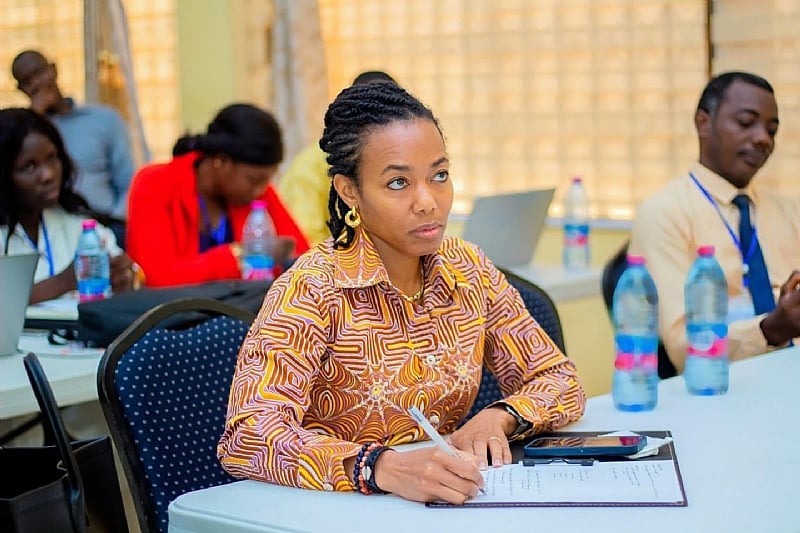Dr. Zanetor Agyeman-Rawlings, the Member of Parliament representing the Klottey Korle constituency, has expressed serious concerns regarding the financial burden placed on the Ghana Armed Forces due to the unpaid use of their resources, particularly fuel, by other government agencies. Speaking during the parliamentary deliberations on the 2025 budget statement, Dr. Agyeman-Rawlings pointed out the prevalent practice of various state institutions utilizing the services and equipment of the Air Force, especially aircraft, without contributing to the operational costs, particularly fuel expenses. This practice, she argued, leaves the Armed Forces grappling with financial constraints, diverting resources that could be used for essential operations and maintenance. Her remarks were directed at the Minister for Defense, urging him to pursue the Minister of Finance for the reimbursement of these costs incurred not by the military’s own activities, but by services rendered to other government bodies. This highlights a critical issue of inter-agency financial accountability and the need for a more structured system for cost-sharing when government entities utilize the resources of another.
Dr. Agyeman-Rawlings’s concerns resonate with a broader recognition of the financial challenges faced by the Ministry of Defense. She acknowledged the bipartisan support from both current and former members of the defense ministry, including those now in the opposition, who have consistently highlighted the ministry’s ongoing financial struggles. This cross-party concern underscores the severity of the issue and the need for a comprehensive solution that transcends political affiliations. The persistent underfunding of the military, coupled with the added burden of uncompensated services rendered to other government agencies, further exacerbates the situation, potentially hindering the Armed Forces’ ability to effectively fulfill their mandate of safeguarding national security.
Beyond the immediate issue of fuel costs, Dr. Agyeman-Rawlings also drew attention to previously discussed matters concerning unfinished military projects. She specifically mentioned the stalled renovation of the ideology department at the 37 Military Hospital, a critical facility providing healthcare services to military personnel and their families. The delay in completing this project raises questions about the prioritization of essential infrastructure within the military and the potential impact on the quality of care provided. Additionally, she raised concerns about the inconsistent progress of Forward Operating Bases (FOBs), which are strategically important for maintaining security and responding to threats. The lack of consistent development of these FOBs could compromise the military’s operational readiness and effectiveness in maintaining national security.
Emphasizing the critical role of the Armed Forces in maintaining peace and security, Dr. Agyeman-Rawlings advocated for increased investment in the defense sector. She underscored the potential of the defense industries to contribute significantly to the country’s overall industrialization efforts. This perspective highlights the potential for a synergistic approach, where investments in defense not only strengthen national security but also contribute to broader economic development. By fostering the growth of defense industries, Ghana could create jobs, stimulate technological innovation, and reduce its reliance on foreign suppliers for defense equipment, promoting self-sufficiency and economic resilience.
In line with other Members of Parliament, Dr. Agyeman-Rawlings called for an increase in the allocated budget for the Ministry of Defense. Recognizing the prevailing economic constraints and the need for fiscal prudence, she urged the government to revisit the defense budget allocation during the mid-year review. This call for increased funding reflects a growing awareness of the importance of adequately resourcing the military to effectively address emerging security challenges. While acknowledging the current economic difficulties and the need to manage the national debt, she argued that investing in defense is a non-negotiable priority, crucial for safeguarding national sovereignty, protecting citizens, and fostering a stable environment for economic growth and development.
Ultimately, Dr. Agyeman-Rawlings’s intervention during the budget debate serves as a crucial advocacy effort for increased funding and improved financial management within the Ministry of Defense. Her call for inter-agency financial responsibility, particularly regarding the use of military resources, underscores the need for a more transparent and equitable system for cost-sharing. The concerns she raised about unfinished projects and the potential of defense industries to contribute to national development highlight the multifaceted nature of defense planning and the need for a comprehensive approach that encompasses not only operational readiness but also infrastructure development and economic contributions. Her plea for a reassessment of the defense budget during the mid-year review underscores the importance of prioritizing national security amidst economic challenges, recognizing that a strong and well-equipped military is essential for maintaining peace, stability, and a conducive environment for national progress.














